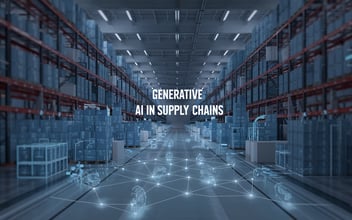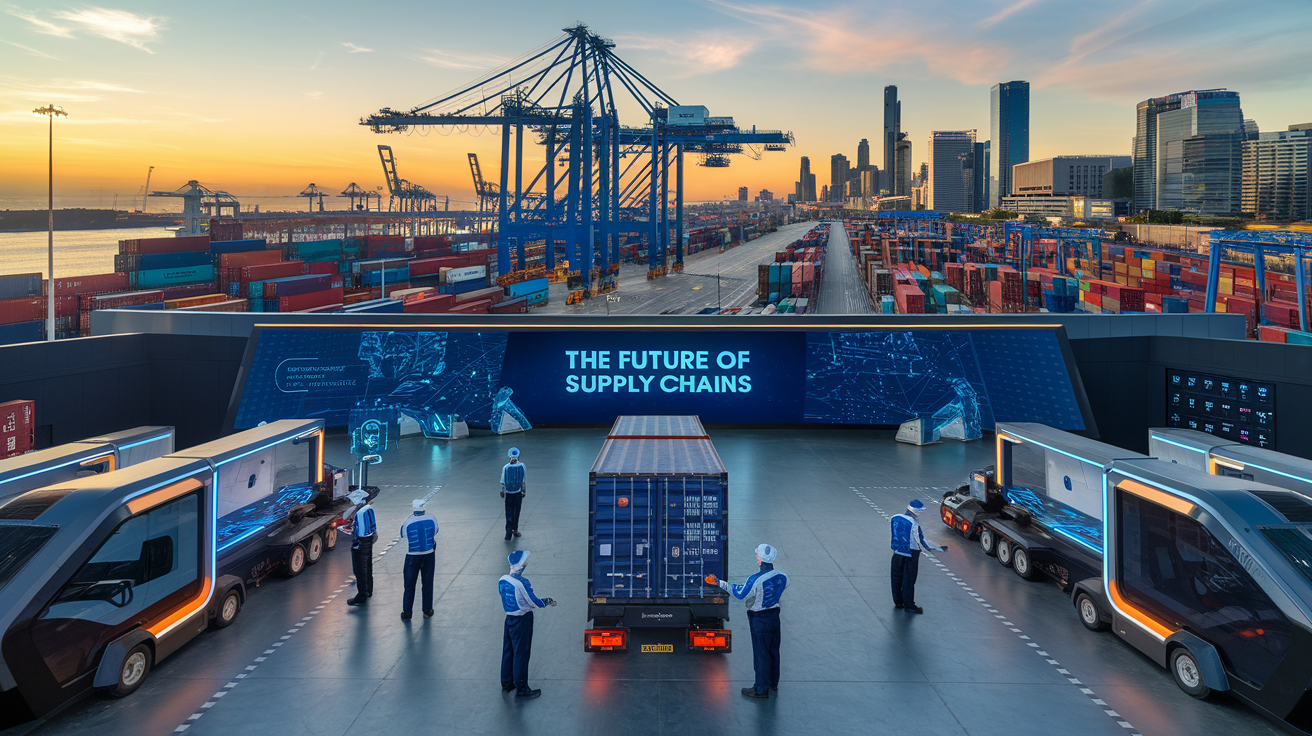
The supply chain world is undergoing a seismic shift. Once viewed as a back-end operational function, supply chain management is now emerging as a strategic powerhouse—driven by rapid technological advancements, growing consumer expectations, and an increasingly volatile global landscape.
To stay resilient and competitive in this dynamic environment, businesses must go beyond traditional logistics. They must embrace emerging capabilities, harness AI innovations, and adopt agile, data-driven platforms that connect every link in their supply chain. Let’s explore the evolving landscape of supply chain operations and the AI trends reshaping the future.
From Traditional to Transformative: New Capabilities for the Modern Supply Chain
Supply chains are no longer confined to tracking inventory or managing transportation routes. They’ve become intelligent ecosystems that require speed, transparency, and strategic adaptability.
1. Agility and Flexibility
Today’s businesses must be ready to pivot in the face of disruptions—whether due to fluctuating demand, geopolitical tensions, or supply constraints. Agile supply chains empower organizations to respond quickly, minimizing downtime and capitalizing on emerging opportunities. This flexibility isn't just a competitive advantage—it's a necessity for survival.
Real-time analytics, predictive modeling, and scenario planning are critical enablers. Companies that integrate these capabilities can course-correct swiftly and make data-driven decisions with confidence.
2. Empowered Workforce Through Digital Upskilling
While AI and automation play a central role in modernizing supply chains, people remain the driving force. Equipping teams with the right digital skills is essential for successful transformation.
From interpreting data dashboards to managing AI-driven planning tools, employees need to stay ahead of the curve. Continuous learning programs, upskilling initiatives, and cross-training are key investments. A digitally competent workforce doesn’t just support operations—it amplifies them.
3. Cross-functional and Ecosystem Collaboration
Supply chains thrive on synergy. Effective communication and coordination across departments—from procurement to production to customer service—are crucial.
Beyond internal integration, businesses are increasingly part of larger supply ecosystems. Collaborating with external partners—suppliers, distributors, logistics providers—in a transparent and connected way enhances efficiency across the entire value chain. Shared platforms and real-time data exchanges are enabling this new era of cooperative supply chain management.
The Rise of AI-Powered Digital Supply Chain Platforms
To unify these capabilities and boost performance, organizations are turning to sophisticated digital supply chain platforms. These platforms consolidate data, integrate functions, and apply AI to deliver deep insights and automation—all in real time.
1. Real-Time Tracking and Visibility
Gone are the days of waiting hours or days for supply updates. Today’s platforms offer live tracking of shipments, inventory levels, production status, and even demand signals. This instant visibility enables proactive issue resolution, faster decision-making, and enhanced customer service.
For example, if a shipment is delayed due to weather, the platform can instantly flag the issue, suggest alternate routes, and notify relevant stakeholders—all automatically.
2. Smarter Demand Forecasting
AI-driven forecasting tools analyze vast datasets to detect trends, patterns, and anomalies in consumer behavior. Instead of relying on static models or gut instinct, businesses can now predict demand with unprecedented accuracy.
This leads to better planning, reduced stockouts, lower holding costs, and improved customer satisfaction. AI not only forecasts what customers want but also anticipates when and where they’ll want it.
3. Seamless Supplier Collaboration
Modern platforms are breaking down barriers between companies and their suppliers. Built-in communication and planning tools foster real-time coordination, ensuring everyone is aligned on expectations, timelines, and performance metrics.
This transparency helps prevent miscommunication, late deliveries, and unexpected costs. It also builds trust, paving the way for longer-term, value-driven partnerships.
Why Customization Is Key: One Size Doesn’t Fit All
As supply chains become more complex, businesses are moving away from generic solutions. Instead, they are opting for tailored, industry-specific platforms that align with their unique needs and challenges.
1. Industry-Specific Demands
Different sectors face different regulatory, operational, and customer requirements. For instance, a pharmaceutical supply chain must prioritize compliance and cold-chain logistics, while an e-commerce operation needs to handle high order volumes and fast shipping.
Tailored platforms allow for sector-specific optimization, ensuring compliance, efficiency, and customer alignment.
2. Managing Complexity at Scale
Large enterprises often operate across multiple geographies, business units, and partner networks. Scalable, customizable platforms ensure that these diverse operations are managed cohesively, with the flexibility to adapt at both the macro and micro levels.
Whether it’s integrating a new supplier, adjusting to regional regulations, or expanding into new markets, a customizable digital backbone enables growth without chaos.
Sustainability: A Strategic Imperative, Not an Option
Sustainability has become a boardroom priority, and supply chains are at the heart of this conversation.
1. Eco-Conscious Procurement and Manufacturing
Companies are rethinking their sourcing strategies to prioritize environmentally friendly materials and suppliers. From using recycled packaging to choosing low-carbon shipping options, these choices have a ripple effect across the supply chain.
AI-powered platforms can support these efforts by evaluating supplier sustainability scores, identifying green alternatives, and optimizing routes to reduce emissions.
2. Greener Production and Distribution
Smart factories are adopting cleaner energy sources, automating waste reduction, and improving energy efficiency through AI and IoT. In logistics, route optimization and modal shifts (e.g., from air to rail) are minimizing carbon footprints.
These sustainable practices not only help the planet but also resonate with increasingly eco-aware customers—and often reduce operational costs in the long run.
Conclusion: Building the Future-Proof Supply Chain
The convergence of AI, digital platforms, and strategic customization is ushering in a new era of supply chain excellence. It’s not just about efficiency anymore—it’s about resilience, adaptability, and innovation.
To thrive in this rapidly evolving landscape, businesses must:
-
Invest in agile capabilities and workforce upskilling
-
Adopt AI-powered platforms for visibility, forecasting, and collaboration
-
Prioritize sustainability as a core strategy
-
Customize their systems to match industry demands and operational complexity
The supply chain of the future is here. It's intelligent, interconnected, and indispensable to long-term success.
Facilitating AI Integration with Pacific Data Integrators (PDI)
Integrating AI and Large Language Models (LLMs) into supply chain management can seem daunting, but with Pacific Data Integrators (PDI), it becomes a streamlined and supported journey. Partnering with PDI ensures a seamless transition and enduring success, turning challenges into opportunities. Discover how PDI's tailored retail solutions can transform your business by consulting with our experts today.

Posted by PDI Marketing Team
Pacific Data Integrators Offers Unique Data Solutions Leveraging AI/ML, Large Language Models (Open AI: GPT-4, Meta: Llama2, Databricks: Dolly), Cloud, Data Management and Analytics Technologies, Helping Leading Organizations Solve Their Critical Business Challenges, Drive Data Driven Insights, Improve Decision-Making, and Achieve Business Objectives.




